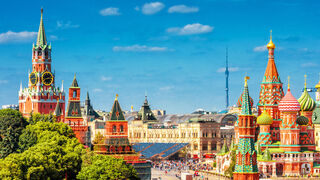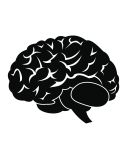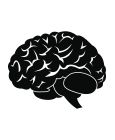Persuasion
Is Putin Beyond Influence?
How to stop a man on a mission. By Robert Jay Lifton, M.D.
Posted March 14, 2022 Reviewed by Hara Estroff Marano
Key points
- The ideology that drives Putin's psychology centers on a godly, unified Russia.
- Putin may view his murderous war as a noble mission on behalf of a sacred Russian Empire.
- Recognition of Putin's ideological extremism might be a first step in making a feasible arrangement with him.

By Robert Jay Lifton, M.D.
The world is preoccupied with Putin’s mindset, but much about that mindset remains obscure. Psychological professionals have emphasized his increasing isolation as a consequence of his dictatorial rule, his being surrounded by yes-men who are unable to question his deeply destructive and self-destructive actions, and his consuming fear of Covid-19, an additional source of seclusion.
The focus on his dictatorial isolation is undoubtedly important, but I am convinced that there is another psychological dimension that has not been given sufficient attention—an ideology, both religious and political, based on the work of the 20th century Russian philosopher Ivan Ilyin. Ilyin’s vision is one of Christian Fascism and centers on a unified, godly Russian empire that is pure in its virtue and absolute in its justified demands. Ilyin’s influence on Putin has been well-documented by Yale historian Timothy Snyder. But there is an American reluctance to recognize the power of ideology on individual psychological behavior.
That neglect can be especially misleading in relation to ideology that veers toward totalism, the all-or-none psychological version of totalitarianism. Such totalistic ideology lays claim to ownership of reality (and even to a science of truth) and creates a fierce commitment to overturn the world on the basis of that claim. (1)
Totalistic ideologies can result in the most bizarre convictions and actions. Consider Adolf Hitler’s view, as expressed in Mein Kampf, that the “Nordic race” had once been strong and dominant but was poisoned and weakened by the influence of the “Jewish race,” so that Jews had to be removed in order to heal the Nordic race. (2)
Or consider the ideology of Mao Zedong, which included a strong emphasis on “mind over technology.” To bring about the industrialization of China during the Great Leap Forward of the late 1950s and early 1960s, he insisted on substituting small “backyard furnaces” for steel factories. That led to a great shortage of agricultural labor, false production reports by cadres, and inability to cope with droughts; resulting in famine so massive as to cause as many as 40 million deaths, making it one of the greatest disasters in human history. (3)
In the totalistic ideologies of Hitler and Mao, mysticism lay beneath “rational” claims to political and historical truth. But Ilyin believed that Nazism was a “Spirit” to be absorbed by Russians and understood the Führer as having “performed an enormous service for all of Europe.” (4)
In Ilyin’s ideology, the mysticism is overt and primal. The Russian nation is “an organism of nature and the soul” (5), and it was “conceived in the eternal Christian spirit as a manifestation of God’s plan.” (6) He went further, regretting Russia’s loss of loss of Christian apocalyptic purity and “the millennial form of state salvation.” (7)
Ilyin was a longstanding exile from the Soviet Communist state and considered White Russians as “my…brothers, the fascists” (8) who would eventually rule a greater Russian Empire. He lived in Germany from 1922 through 1938, and then in Switzerland until his death in 1954. Putin oversaw the repatriation in 2005 of Ilyin’s remains from Switzerland to reburial in Moscow. He also arranged for a parallel repatriation of Ilyin’s papers, which had originally been deposited at Michigan State University. Putin has publicly referred to Ilyin as his “historical” mentor, encouraged interest and republication of Ilyin’s work, and assigned it to his subordinates.
Ilyin envisioned a Russian Empire as a large, inclusive entity, as a “living, historically developed, and culturally justified organism” that should not be “subject to arbitrary dismemberment" or to a “diseased disintegration, a process of decomposition,” which would bring “putrefaction, and a universal infection.” (9)
Putin echoed this language of dismemberment in his 2005 state of the nation address, when he said that “the demise of the Soviet Union was the greatest geopolitical catastrophe of the century” and that “for the Russian people, it became a genuine tragedy. Tens of millions of our fellow citizens and countrymen found themselves beyond the fringes of Russian territory." (10)
Ilyin viewed Russia as the constant victim of incursions of Western powers, so that “since its full conversion to Christianity, can count 1000 years of historical suffering.” (11) From that standpoint, Putin’s use of the term “denazification” in invading Ukraine may have less to do with Nazi killing of Jews than with a collective Russian sense of being vulnerable to invasion by foreigners, the innocent victims of evil forces.
Ilyin’s visions have lent themselves to Putin’s falsifications, to his resemblance to Trump in what I call “solipsistic reality” – which means embracing as true that which the self requires, as opposed to applying general standards of evidence. For instance, Ilyin used quotation marks around the word Ukrainians, conveying a sense that such an identity did not really exist. (12)
For Ilyin, Western liberalism is corrupt: “The replacement of freedom for the sake of spirit by freedom from spirit, from God, from conscience, from honor, from national culture, from fatherland.” (13) He denounced specifically democratic procedures: “We must reject the mechanical and arithmetical understanding of politics” along with “blind faith in the number of votes and its political significance.” (14) Instead, he insisted that Russians had “a special arrangement of the soul” that allowed them to suppress their own reason and to accept “the law in our hearts.” (15) We may assume that Putin has acted upon such an “arrangement of the soul” in his falsifications and fake news.
For Ilyin, then, achieving a Fascist empire could be “an act of salvation.” (16) It is good versus evil: “He who opposes the chivalrous struggle against the devil is himself the devil”; and “May your prayer be a sword and your sword be a prayer!” (17)
Beyond pretexts such as Ukrainian “genocide” of ethnic Russians, Putin’s embrace of Ilyin’s vision could enable him to view his murderous war as a noble mission on behalf of a sacred Russian Empire. He could be Russia’s great savior, what Ilyin called its “instrument of self-redemption.” (18)
As I have repeatedly emphasized in my work: It is difficult – perhaps impossible – to kill very large numbers of people except with a claim to virtue.
Totalistic ideology can dominate the self and give rise to extreme distortions. What is involved is not mental illness in the classical sense: We cannot say that Putin is psychotic, schizophrenic, or bipolar. Even if we call him a malignant narcissist, that is more of a characterological disorder than a classical mental illness. What we can surely call him is an ideological fanatic of the most dangerous kind.
Ideologues themselves can have their interpretive psychological forays. Ilyin applied his own dubious psychoanalytic perspective in relation to Russia, emphasizing the necessary “release” of Russian masculinity. (19) He had a few sessions with Freud apparently devoted to this issue and regarded Mussolini as a model for such masculinity. The frequently shirtless Putin seems bent on achieving his personal masculine “release.”
What does this account of totalistic ideology suggest about an approach to Putin and his brutal war on Ukraine? On the one hand his immersion in ideology that has a certain collective currency provides self-justification that makes his behavior resistant to influence. On the other hand, our recognition of his ideological extremity might be a first step in making a feasible arrangement with him.
Such an arrangement would require raising questions in Putin’s mind about the possibility of completely achieving his vision of greater Russia. It would require increasing military and economic support for the Ukrainians. And we could take further steps to undermine what I call milieu control (20)—the effort at total domination of communication in an environment—which Putin is now seeking to impose on all of Russia. While he has undoubtedly had a great deal of success in this, my experience is that milieu control is extremely difficult to sustain, and there is evidence that Putin is experiencing such difficulty.
At the same time, it would require encouraging in Putin the belief that he has already achieved a portion of his sacred mission so that he need not continue making war. Ilyin in fact gave recognition to such a possibility when he spoke of “spiritual compromise [that] seeks and finds the most righteous among available unrighteous outcomes.” (21)
There is an American fear of another Cold War with Russia, but a cold war that is relatively stable is more desirable than the murderous heat of war-making increasingly aimed at civilians. In that way, our recognition of Putin as a totalistic ideologue may enable us to achieve what is for the world the least abhorrent result.
Robert Jay Lifton is a psychiatrist and author of many books including Death in Life: Survivors of Hiroshima (winner of a National Book Award), The Nazi Doctors: Medical Killing and the Psychology of Genocide (winner of a Los Angeles Times Book Prize), and more recently, Losing Reality: On Cults, Cultism, and the Mindset of Political and Religious Zealotry.
References
A comment on the citations: In all but one place (which is noted, in endnote 19), the references to Timothy Snyder’s book The Road to Unfreedom, are for Ilyin quotes that appear in Snyder’s book.
[1] Robert Jay Lifton, Thought Reform and the Psychology of Totalism: A Study of “Brainwashing” in China (Chapel Hill: University of North Carolina Press [1961], 1989)
[2] Robert Jay Lifton, The Nazi Doctors: Medical Killing and the Psychology of Genocide (New York: Basic Books [1986], 2017)
[3] Robert Jay Lifton, Losing Reality: On Cults, Cultism, and the Mindset of Political and Religious Zealotry (New York: The New Press, 2019)
[4] Timothy Snyder, The Road to Unfreedom: Russia, Europe, America (New York: Tim Duggan Books, 2018), 20
[5] The Road to Unfreedom, 23
[6] Kripkov, Oleg D. "To Serve God and Russia: Life and Thought of Russian Philosopher Ivan Il'in." Order No. 9909601, University of Kansas, 1997. ProQuest Dissertations Publishing. P. 271
[7] Kripkov, Oleg D. "To Serve God and Russia: Life and Thought of Russian Philosopher Ivan Il'in." Order No. 9909601, University of Kansas, 1997. ProQuest Dissertations Publishing. P. 274
[8] The Road to Unfreedom, 19
[9] Grier, P.T., (1994). The complex legacy of Ivan Ilín. In J.P. Scanlan (Ed.) Russian thought after communism: The recovery of a philosophical heritage (pp. 165-186).
[Note that the specific page reference for this Ilyin quote is p. 170]
[10] “Putin: Soviet collapse a 'genuine tragedy'”, April 25, 2005, NBC News, https://www.nbcnews.com/id/wbna7632057
[11] The Road to Unfreedom, 24
[12] The Road to Unfreedom, 23
[13] Kripkov, Oleg D. "To Serve God and Russia: Life and Thought of Russian Philosopher Ivan Il'in." Order No. 9909601, University of Kansas, 1997. ProQuest Dissertations Publishing. P. 274
[14] The Road to Unfreedom, 26
[15] The Road to Unfreedom, 28
[16] The Road to Unfreedom, 25
[17] The Road to Unfreedom, 25
[18] The Road to Unfreedom, 26
[19] The Road to Unfreedom, 26 [Note that the term “release” is Snyder’s]
[20] Lifton, Thought Reform and the Psychology of Totalism
[21] Ivan Alexandrovich Ilyin (2018), On Resistance to Evil By Force, (K. Benois, Trans.) Taxiarch Press. (Original work published 1925) p. 203




